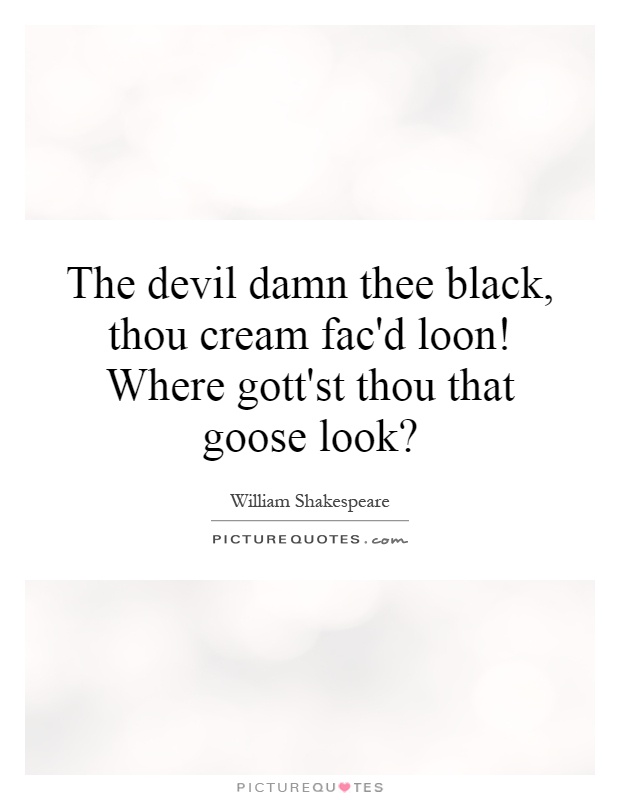The devil damn thee black, thou cream fac'd loon! Where gott'st thou that goose look?

The devil damn thee black, thou cream fac'd loon! Where gott'st thou that goose look?
In William Shakespeare's play "Macbeth," these words are spoken by the character Macbeth in Act 5, Scene 3. Macbeth is addressing the servant Seyton, who brings him news of the advancing English army. The quote reflects Macbeth's growing desperation and madness as he faces the consequences of his actions.The phrase "The devil damn thee black, thou cream fac'd loon!" is a curse directed at Seyton, accusing him of being in league with the devil. The use of the word "black" suggests evil or darkness, while "cream fac'd loon" implies foolishness or cowardice. Macbeth's anger and frustration are evident in his harsh words, as he struggles to maintain control over his crumbling kingdom.
The second part of the quote, "Where gott'st thou that goose look?" further demonstrates Macbeth's disdain for Seyton. The term "goose look" implies a foolish or gullible expression, suggesting that Seyton is not to be trusted. Macbeth's paranoia and distrust of those around him are heightened as he becomes more isolated and desperate.
Overall, this quote encapsulates the themes of madness, guilt, and betrayal that run throughout "Macbeth." Macbeth's descent into darkness and despair is reflected in his harsh words towards Seyton, as he grapples with the consequences of his actions and the realization that his power is slipping away.
Shakespeare's use of language in this quote is powerful and evocative, capturing the intensity of Macbeth's emotions and the turmoil of his mind. The imagery of darkness, foolishness, and betrayal adds depth to the character of Macbeth and highlights the tragic nature of his downfall.












 Friendship Quotes
Friendship Quotes Love Quotes
Love Quotes Life Quotes
Life Quotes Funny Quotes
Funny Quotes Motivational Quotes
Motivational Quotes Inspirational Quotes
Inspirational Quotes